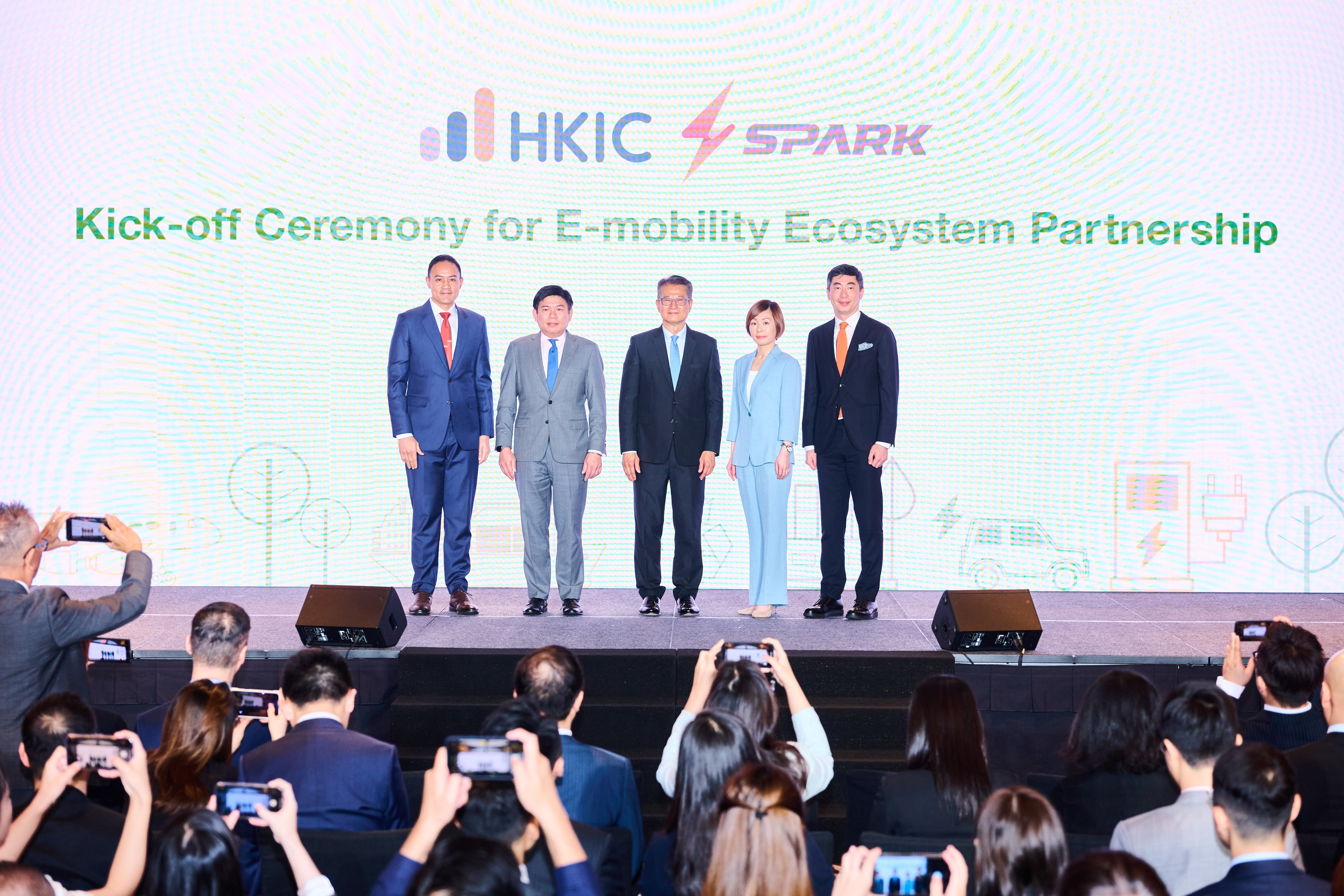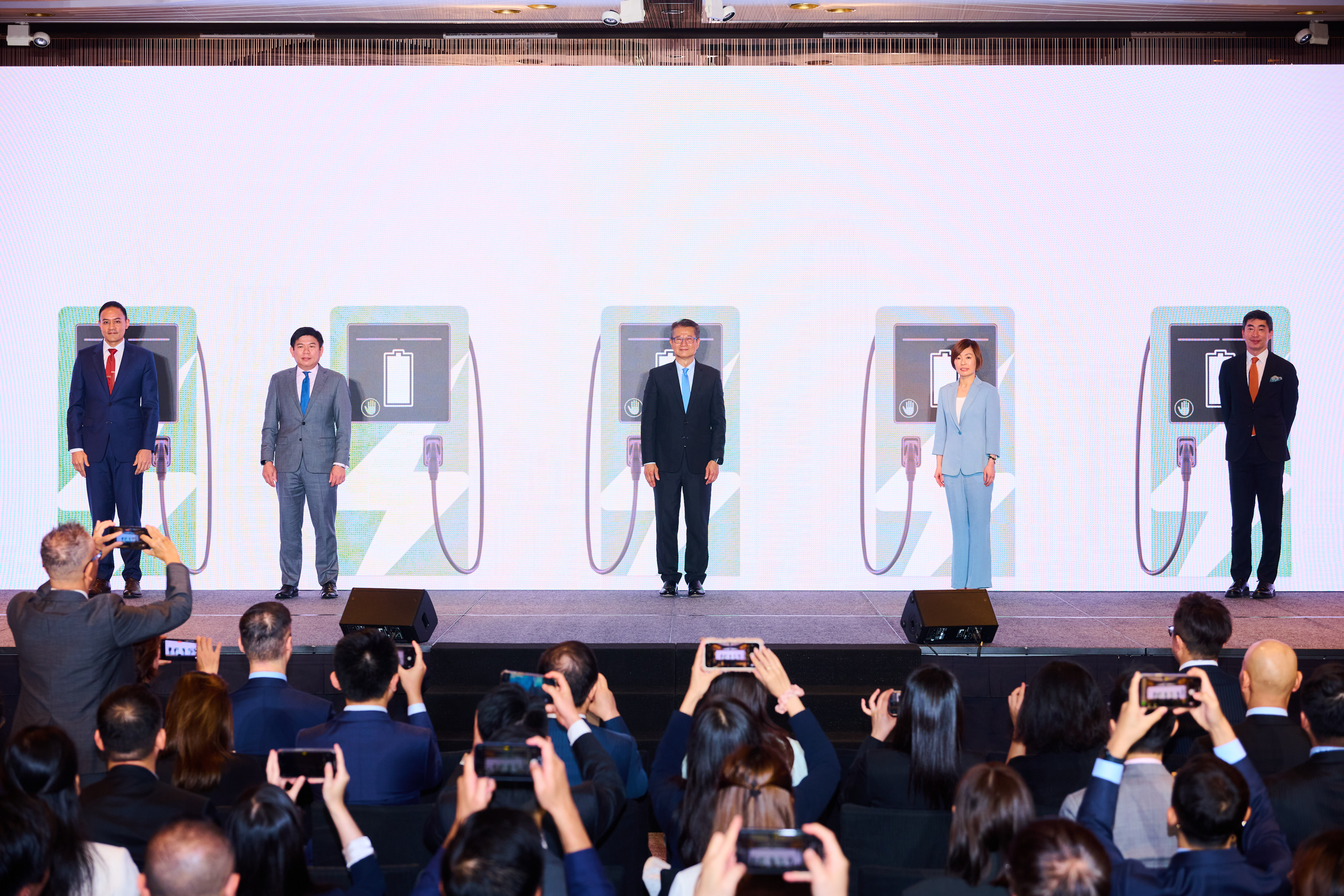
Government-owned Hong Kong Investment Corporation (HKIC) made its first overseas foray with an ecosystem partnership for e-mobility applications on Thursday, as Hong Kong seeks to export its green transport technologies and solutions to Thailand, and eye the wider Southeast Asian market.
With the HKIC’s investment, Hong Kong-Thailand joint venture Spark will partner with Thai state-owned energy conglomerate Bangchak Corporation to build more than 1,000 electric vehicle (EV) charging facilities across the country within the coming five years, with three of them already completed. Through such collaboration, Spark aims to become one of the top three EV charging brands in Thailand by 2026.
The project goes beyond providing charging infrastructure. Spark will also develop real-time monitoring and management systems for charging facilities, leverage mobile big data analytics, and engage in talent training programs.
Financial Secretary Paul Chan Mo-po said he believes that EV charging is a catalyst for new business and services models, potentially creating opportunities for coffee shops, convenience stores, and other venues to offer services to customers when they leave their vehicles for charging.
ALSO READ: HKIC-SmartMore accord heralds robust AI ecosystem for city
Describing the partnership as “to be excited about and meaningful”, Chan highlighted Thailand’s commitment to decarbonize the transportation sector, while also noting that the country’s “charging infrastructure has only recently begun to gain momentum”.
Driven in part by government policies, including a ban on the sale of internal combustion engine cars starting in 2035 and subsidies for EV purchases, new EV registrations in Thailand jumped from around 1.4 percent of the total vehicle registrations in 2020 to last year’s 14 percent. Chinese brands claimed four of the top five spots in terms of EV sales.
Despite the progress, “EV charging infrastructure (in Thailand) has plenty of room for growth,” said Clara Chan Ka-chai, CEO of HKIC. The EV-to-charger ratio in the country is about 19:1, compared with the common level of 10:1 seen globally.
ALSO READ: HKIC signs its second strategic partnership agreement within 2 weeks
Hong Kong, with one of the highest EV penetration rates in Asia, is well-positioned to assist Thailand in its green transformation through the city’s cutting-edge technologies, Paul Chan said.
“While Hong Kong is not home to mass EV production, our tech community is creating many innovative solutions for EVs and other new-energy applications,” the finance chief added.

Clara Chan agreed, saying “this presents interesting investment tailwinds for the HKIC”, adding that she hoped this project would serve as a springboard for creating more replicable cases in Southeast Asia, and enable Hong Kong tech firms to assume a greater role in the market.
In addition to the Southeast Asian market, Clara Chan reaffirmed the HKIC’s willingness to take on projects and partners from around the world, be it in the private or public sector. She said the company is keeping an eye on potential partners in international markets such as Europe and the United States, and will announce any developments once the timing is right.
READ MORE: HKIC breaks ground with first AI industry deal
With a focus on artificial intelligence, biotechnology, and new energy/green technology, the HKIC — functioning as “patient capital” — inked its first cooperation agreement with Hong Kong-based unicorn SmartMore in June, aiming to speed up AI development in the city. Later that month, it established a partnership with life science company BioMap, which intends to support more than 50 early-stage research and development projects over the next five years in Hong Kong. In July, the HKIC expanded its portfolio by entering into a cooperation agreement with robotics company Galbot.


